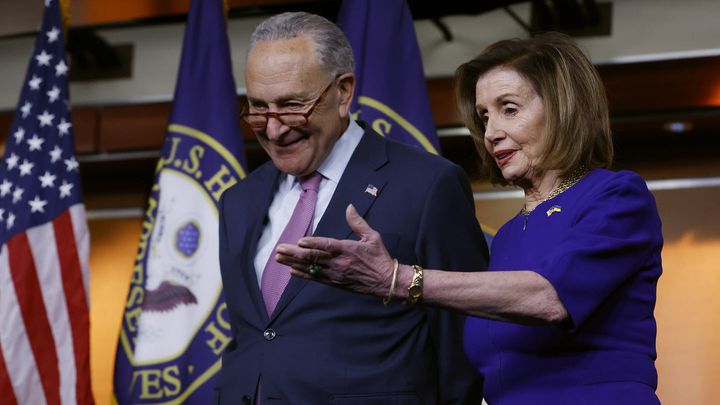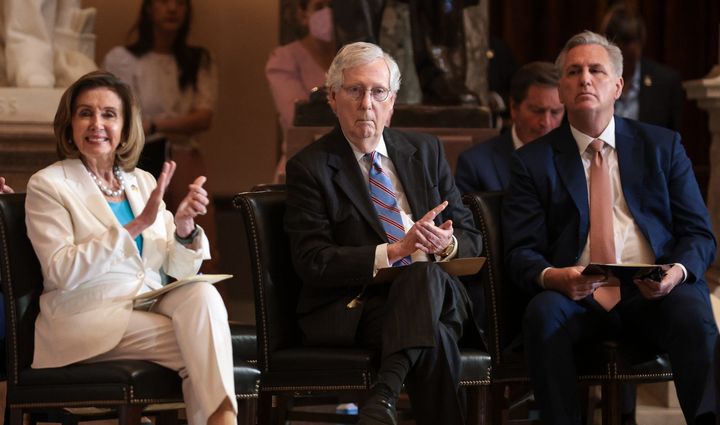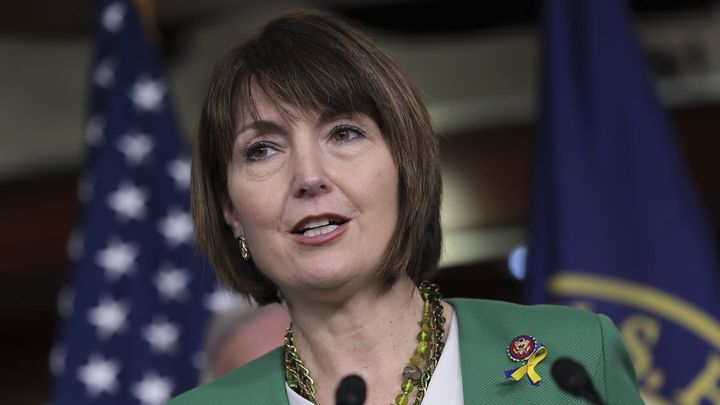This week, Sen. Amy Klobuchar (D-Minn.) took to the Senate floor to call for a vote on a long-simmering bipartisan bill that would reshape tech platform antitrust policy—with dwindling time in the legislative calendar before the midterm elections.
“It’s time to stop throwing popcorn at the C.E.O.s and actually do something,” Klobuchar said in her remarks. “Now it is time to bring this bill to a vote on the floor.”
Referring to the tech giants, Klobuchar said, “At some point they have gotten so big that you have to put some rules of the road in place to ensure that we can have the next Google or competitor to Google, or we can have a true competitor to Amazon… this isn’t going to happen if you let four big platforms control the day.”
The American Innovation and Choice Online Act (S. 2992), sponsored by Klobuchar with Sen. Chuck Grassley (R-Iowa), seeks to curb the market power of tech platforms like Amazon, Apple, Facebook, and Google by making it illegal for them to privilege their own products on their platforms or unfairly limit availability of their competitors’ products.
In January, the bill passed out of the Senate Committee on the Judiciary by a bipartisan vote of 16 to six, but since then it has been stalled by Senate Democratic leadership, which has refused to call it up for a vote.
The bill, AICOA for short, received an unambiguous thumbs-up from the committee’s ranking member Grassley on July 13 in a comment to Punchbowl News. Grassley confirmed he had told Senate Majority Leader Chuck Schumer (D-N.Y.) that enough GOP senators would support the bill to reach the 60-vote threshold needed to invoke cloture if a senator moves to filibuster it.
A second bill backed by antitrust reform advocates, the Open App Markets Act (S. 2710), which is sponsored by Sen. Richard Blumenthal (D-Conn.), has seven Republican co-sponsors and was approved in committee in February by a 20-2 vote. The bill would require that giant companies like Apple allow apps in their App Store to use in-app payment processing services that they do not own. The bills’ Senate supporters expressed confidence last week in their ability to marshal the votes to pass the Senate and the House.
Advocacy groups that support the measure have been campaigning for Majority Leader Schumer to bring the bipartisan legislation to a vote this month, before the August recess, with the likelihood that its support among lawmakers will be lessened in the next Congress. Focus is on Schumer because he controls the legislative calendar and could bring the bills up for votes whenever he chooses. On Wednesday, Schumer told reporter Jake Sherman that he supports the bills, reiterating his statement from May, and wants to bring them to the floor.
One of Schumer’s daughters is a registered lobbyist for Amazon in New York and another daughter works as a product marketing manager at Facebook.
The U.S. House is also sitting on tech company-focused antitrust legislation that has long since advanced out of committee. Last summer, the House Committee on the Judiciary approved a package of tech platform antitrust legislation after a marathon markup—with one bill, the Ending Platform Monopolies Act (H.R. 3825), squeaking through in a vote of 21-20.
Rep. David Cicilline (D-R.I.), chair of the House Subcommittee on Antitrust, Commercial and Administrative Law and a leading supporter of the tech platform measures, issued a statement this week calling on Democratic leaders to bring the bills up for votes.
“We’ve just got to get the bills to the floor for the vote,” Cicilline told reporters on Tuesday. “I am confident we have the votes to pass in both chambers.”
The tech companies have funded a sustained lobbying and PR blitz against the legislation, raising concerns that widely-used products would be affected. Schumer has been on the receiving end of personal calls from the CEOs of Google and Amazon, and earlier this month reportedly met with Microsoft President Brad Smith on a trip to Washington State.



